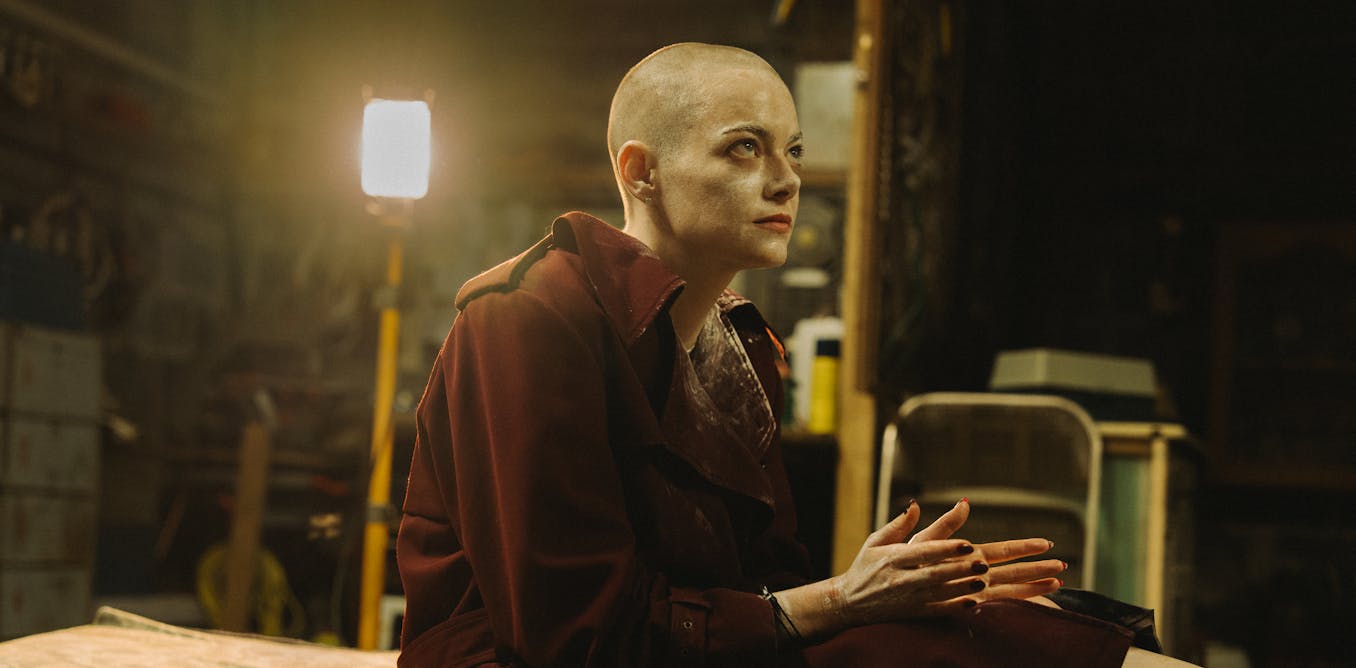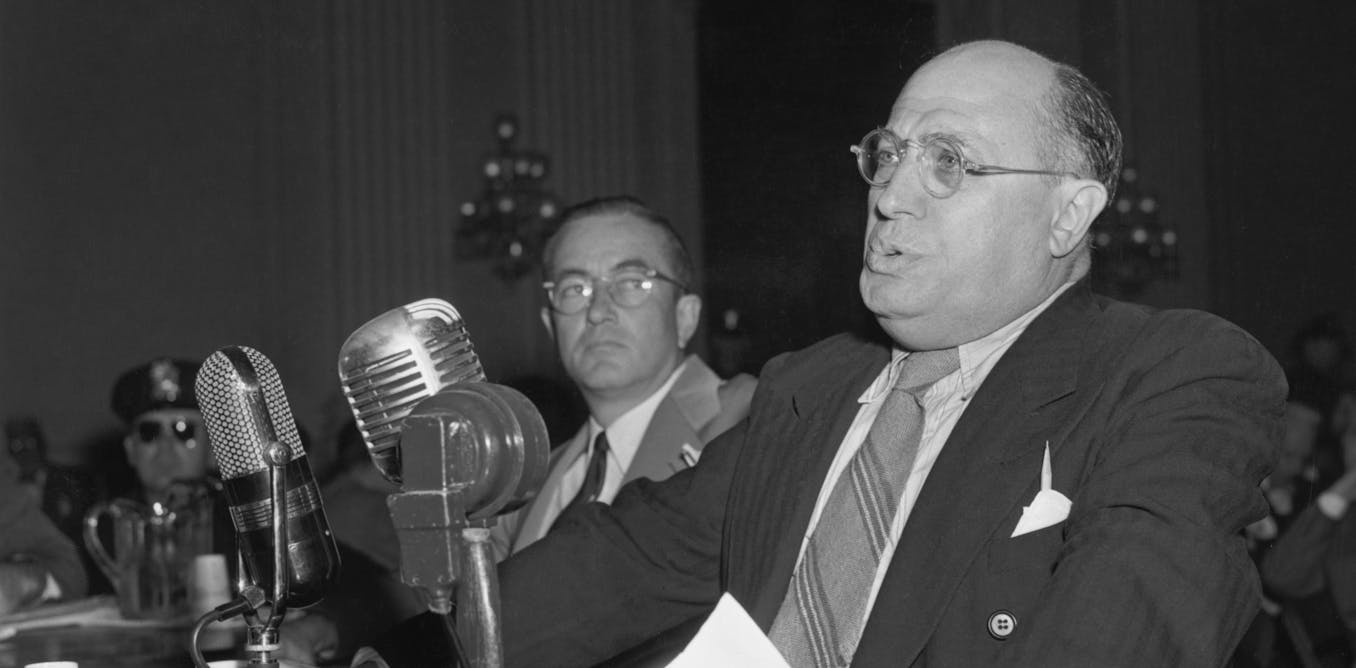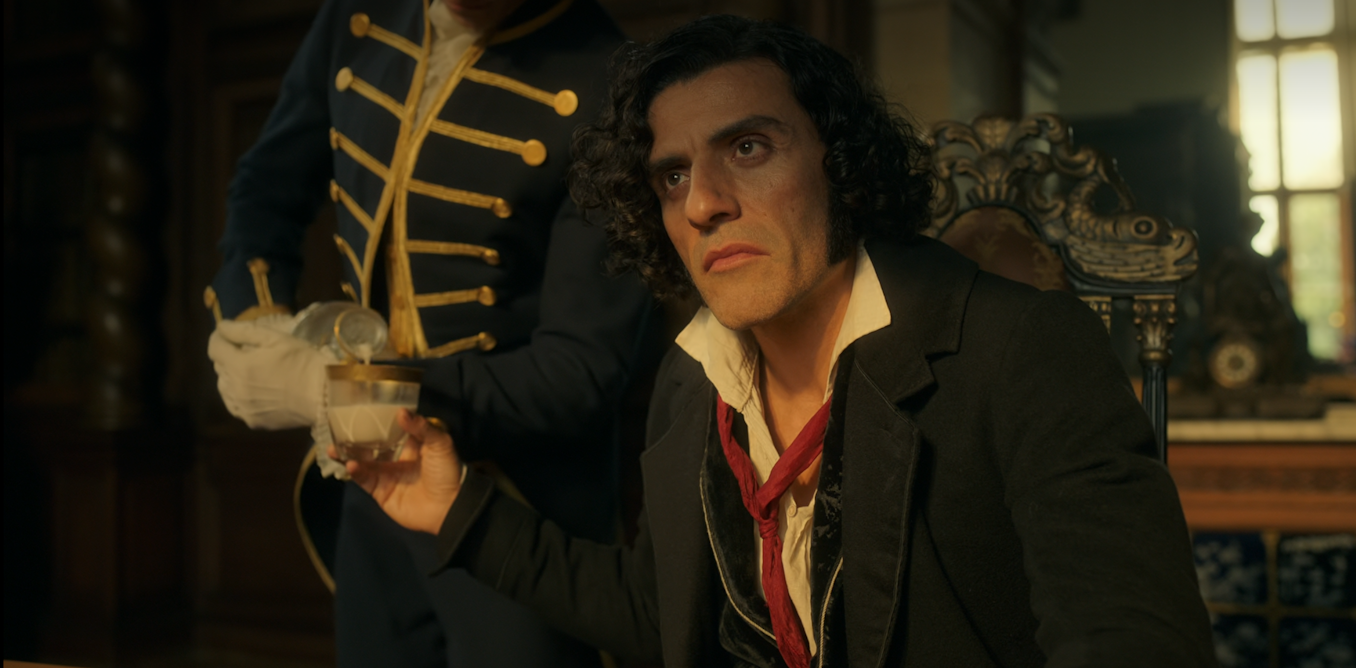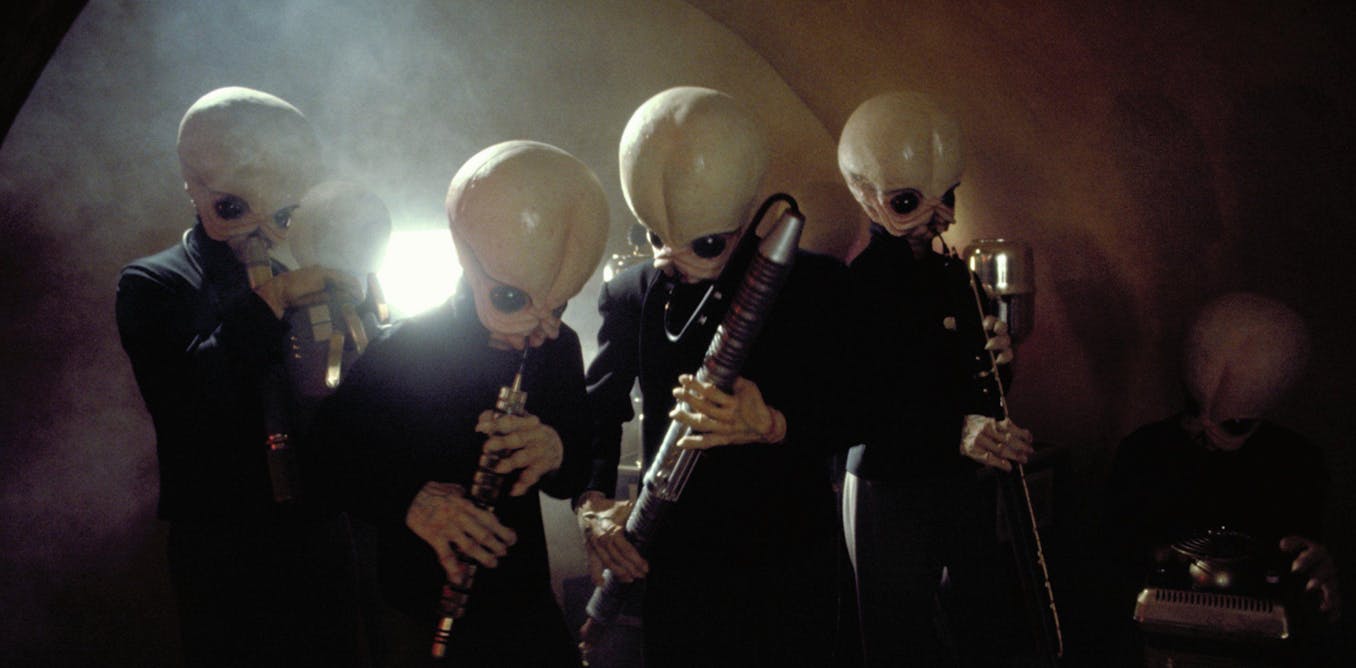Greek director Yorgos Lanthimos’s fourth film with actress Emma Stone finds the pair once again galvanising one another to extraordinary work. The partnership has produced two of the finest films of the last decade – The Favourite (2018) and Poor Things (2023) – as well as the less successful but still fascinating Kinds of Kindness (2024).
Like Alfred Hitchcock with Ingrid Bergman, or Ingmar Bergman with Liv Ullmann, this has emerged into a true creative partnership where director and actress are equals in the artistic process. This latest collaboration is a hugely funny, horrifying and intense experience that defies expectations even for audiences who are prepared for the unique absurdism, visionary style and flouting of narrative logic that marks Lanthimos’s film.
Read more:
Bugonia: why some people’s brains cling to the idea that aliens are real
Teddy (Jesse Plemons) is a paranoid, suggestible conspiracy nut who, fuelled by internet diatribes, abducts corporate CEO Michelle (Emma Stone). He is convinced Michelle belongs to an alien race planning to enslave and oppress humanity. What ensues in the confines of a grim suburban basement is a tense, close quarters negotiation between slickly posed, disingenuous corporate figurehead Michelle and delusional warped fantasist Teddy.
The core of the film and its greatest asset is Stone’s nimble, pivoting performance as her character tries any number of strategies to break Teddy’s resolve and make him reflect on the folly of his actions. “I think you’re in an echo chamber,” she says becoming increasingly desperate. She is driven to rationalising with a man clearly in no mental state to accept the accusation.
Plemons returns brilliantly to the toxic narcissism that he played so well in his standout Black Mirror episode “USS Callister” and its sequel. As in those superb pieces of satirical TV, he may be tragic and ridiculous, a man who feels the world has failed him utterly. But he is still frightening and dangerous, despite a surface of goofy comic ineptitude.
While Bugonia pointedly evokes contemporary ideological conflict, neither character espouses either left- or right-wing political leanings. It’s neither a satire of the woke debate or the culture wars. Nor does it jab at Trump and his voters.
Teddy’s feelings of abuse by the “system” (whatever that might comprise in the mind of this tragically paranoid and traumatised man) are scattershot and unfocused. His only recourse in the overwhelming noise of internet chatter is to assume that the situation is so dire it simply has to be aliens manipulating events to their own obscure purpose.
This deeply uncanny film keeps itself strange through tonal shifts between the silly and the shocking. The offbeat editing, full of sudden jarring cuts scored with orchestral stabs, keeps the audience in an uncomfortably uncertain position. Surely we should recognise Teddy as a deluded lunatic. But might he actually be right about Michelle’s origins? Her cool, collected corporate ease certainly seems so fluid and precise as to be jarringly alien.
Despite Lanthimos’s visionary style and absurdist tone, the film still sits firmly within the conventions of the subgenre of abduction horror films. These are sometimes called “bottle thrillers” for their confined locations (The Black Phone, 10 Cloverfield Lane, Green Room all mine effective scares from this setup). It is absurd and comic, but it still works well as a gripping if offbeat thriller.
Bugonia is a remake, fairly closely following the broader plot of South Korean film Save the Green Planet! (Jigureul Jikyeora!, 2003). Director Jang Joon-hwan was inspired by the film of Stephen King’s Misery, one of the most celebrated bottle thrillers, whose antagonist Annie Wilkes (Kathy Bates) he felt lacked complexity. To counter this, in Save the Green Planet! it turns out that the kidnapped CEO runs a pharmaceutical company that the kidnapper blames for personal tragedy – a narrative turn Bugonia preserves.
The often profoundly uncomfortable intensity of Bugonia ratchets up as the film progresses, pivoting the audience wildly between brash comedy and abject horror. This remake plays differently to the original in its casting of a woman as the CEO. From the moment when Teddy instructs cousin Don, his gullible and impressionable accomplice, to shave off Michelle’s hair – “to prevent her contacting her alien mothership” – the audience is clear on the possibility of shocking violence.
Atsushi Nishijima/Focus Features
What the film’s title means is not really elucidated during its two-hour run. But knowing that bugonia is a ritual based on the ancient Mediterranean myth that bees spontaneously generate from the carcasses of cattle helps a little when it comes to the film’s central message.
Teddy keeps bees, a mindful activity that appears to offer some comfort to an otherwise cluttered mind, oversaturated and baffled by the cacophony of internet polemics. Falling somewhere between cynical nihilism and reflective mourning, Bugonia is clearly telling us that the world might be better off if we left it to the bees.

Looking for something good? Cut through the noise with a carefully curated selection of the latest releases, live events and exhibitions, straight to your inbox every fortnight, on Fridays. Sign up here.

The post “a brilliant abduction thriller with Yorgos Lanthimos’s distinct absurdist stamp” by Matt Jacobsen, Senior Lecturer in Film History in the School of Society and Environment, Queen Mary University of London was published on 10/31/2025 by theconversation.com




































Leave a Reply